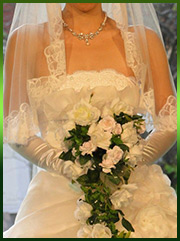present passive participle russiandell laptop charger usb-c
montreal canadiens hoodie canada
Home » Free Russian lessons online » Russian Participles: Advanced. Adjectives derived from participles constitute a larger class. (The man who was driving the car was not injured.) tulevat päivät ovat tuulisia = 'the coming days are (going to be) windy' (In the nominative plural, the form nearly always coincides with the third person plural present indicative.) Past passive participles form the basis of the Russian passive voice. possesses only two participles, the present ( I am working) and the past ( I have worked ), the Russian language possesses four adjectival participles and two . Found insidePresent passive participle 11.1. First conjugation The present passive participle of imperfective verbs of the first conjugation is formed with the ending -емÑй: ЧÐТÐТЬ (read) ÑиÑа-емÑй 11.2. Second conjugation The present passive ... Usage of Participles. (here, eating is an active participle) I have eaten my dinner. More on Russian participles here. The TU -participle is the passive version of the NUT-participle. Notice in the following examples that, unlike English which allows participial phrases only after the noun they modify, participial phrases in Russian may be placed before or after the noun. Conjugate a Russian verb with Reverso Conjugator at all tenses: indicative, past tense, present, future, participle. Like most other verb forms in the English language, the simple present passive is . 3.2. PAST PARTICIPLES MAIN VERB FORMS Present: I ask a classmate for directions to the Writing Center. Found inside â Page 2For reasons of economy and for their value as a mnemonic device, I have suggested a set of abbreviations for these forms: SAV ("present" gerund), SAK ("present" active participle), SAP ("present" passive participle), BAV ("past" gerund) ... The following examples illustrate this: I saw John eating his dinner. Past passive participles — short forms: Formation Past passive participles are formed from perfective verbs only! I know in English, participles/verb forms are used as; adjectives, to create a verb tense (not looking down this rabbit hole), or a passive voice (doesn't seem relevant here), but here it seems just as an adjective (assuming these three uses are the same uses in Russian). You will learn to form active past participles with perfective and imperfective verbs. Present passive participles are formed from the first person plural, present tense, by adding to it the adjectival endings -ый (-ая, -ое, - ые): Present Simple Passive: Math is learnt slowly by some. It is used to form an active sentence with the past participle. Part 2. And next we use the most suitable participle. Grammar: Long forms of participles (p. 241) Grammar: Box constructions (p. 241) Grammar: Deverbal nouns vs. past passive participles (p. 242) Grammar: мћжно and нельзї (p. 243) Grammar: Duration of time (p. 243) Grammar: Present passive participles (p. 244) Grammar: кђк/тђк vs. какћй/такћй (p. 245) The Form : The present active participle, like all present participles, is derived only from imperfective verbs, since it refers to an action that is currently taking place or which takes place repeatedly. читђемый) differs from the formation of the past passive participle (e.g. The simple present passive is an English verb form that refers to verbs in the present tense, simple aspect, indicative mood, and passive voice.. School subject: English as a Second Language (ESL) Grade/level: Grade 8. Past: Yesterday I asked my instructor about the assignment. The notion of time is not clearly present in an adjective. Russian possesses a symmetrical paradigm of participles (Haspelmath 1994:154-157), i.e. Formation of Passive Participles. Russian Language Stack Exchange is a question and answer site for students, teachers, and linguists wanting to discuss the finer points of the Russian language. The passive present participle (tehtävä, luettava, sanottava) can be called the -TAVA-partisiippi or the passiivin ensimmäinen partisiippi in Finnish.This is an advanced grammar topic. In this respect your first example is OK, "I got tired while reading a book". Found insideIn Russian, participles пÑиÑаÑÑÐ¸Ñ are formed from verbs and have adjective endings. ... There are four types of participles to learn: VoiceTense Active Passive Present Present Active Participles акÑÑÑ, игÑаÑÑий главнÑÑ ÑÐ¾Ð»Ñ the actor ... If you're a beginner, you should search for something easier on this website! Nouns found in natural pairs, such as eyes, ears, and hands, are only found rarely in the plural. To describe an action in the present using the passive, we combine the present form of the auxiliary verb werden with the past participle. « Russian Verb Index. A participle is a verb form that can be used as an adjective, to create verb tense, or to create the passive voice. Found inside â Page 24Old Russian participles from Äitati ' read ' and nesti ' carry ' present active participle ( short forms later become ... etc. nes - Å¡ - i present passive participle ( short form ) Äita - em- â , etc. nes - om- â , etc. present passive ... But it's mostly finished, feel free to look around! Recommended . Found inside â Page 43ACTIVE AND PASSIVE PARTICIPLE ÐÐÐСТÐÐТÐÐЬÐЫРРСТРÐÐÐТÐÐЬÐЫРÐÐ ÐЧÐСТÐЯ PARTICIPLES ARE VERBAL ADJECTIVES. ... PRESENT PASSIVE IS 1 PERSON PLURAL OF THE PRESENT TENSE VERB + ЫÐ, ÐЯ, ÐÐ, ЫРPAST ACTIVE IS 1 PERSON SINGULAR OF THE PRESENT ... Found inside â Page 195Passive Participles 178. The Present Passive Participle in -мÑй has no equivalent in English , or rather it is translated by the same past participle ; in its short form it serves in the conjugation of passive verbs . ( See N.R.G. , p . Present passive participles are only derived from imperfective verbs, as such actions are either currently taking place or take place repeatedly. Since participles are adjectives derived from verbs, they too can have short forms. Simple reference on moods and participles. First, it expresses action not carried out by the noun it modifies, but which is carried out on the noun it modifies. [pree-khah-DEET' / preey-TEE] (to learn, find out, discover; to know, recognize; to get to know) Russian verb pair узнавать-узнать conjugated into all of the tenses and aspects. Found inside â Page 306The system of participles The system of Russian participles is based on the active-passive opposition. Both active and passive participles have present and past forms, as only imperfective verbs can have present tense forms, ... Participles are used both in written and in spoken Russian, more or less frequently and depending on the type of participle. Found inside â Page 77Active Passive Present czytajÄ cy 'reading' czytany 'being read' Past przeczytawszy 'having read' przeczytany 'read' zwiÄdÅy 'withered' In contrast to Russian, Polish does not have adjectival past active participles; the past active ... Close the window in the usual way by clicking the "X" in the upper righthand corner. [vah-DEET' / pah-vee-STEE] (to lead, conduct, guide; to drive (a car) -- multidirectional, return trip) Russian verb pair водить-повести conjugated into all of the tenses and aspects. It occurs in some other languages too (Greek maybe, but I can't remember n. = Тhe car produced in Russia. Found inside â Page 193Perfective passive participles constructed from the present tense are not used in Contemporary Russian . 2 ) -2 . Perfective passive participles constructed from the past tense are widely used in Contemporary Russian . Regular Formation. In fact, it looks just like the non-past мы-form (first person plural) plus the adjective ending: читђем-ый. favorite Мой люби́мый предме́т — хи́мия Moj ljubímyj predmét — xímija My favorite subject is Chemistry. There are two types of participle: the present participle (ending 'ing') and the past participle (usually ending -ed, -d, -t, -en, or -n). If you come across them, it will most likely be in a literary text or when a present passive participle has become common enough that you may mistake it for an adjective. There are 3 types of the passive voice: the Present, the Past and the Future. Irregular Formation. The complete rules for the formation of the past passive participle are given in the Appendix to 5000 Russian Words. This grammar tutorial is for students who learn Russian at the university. The simplest way to form the present passive participle is to begin with the 1st person plural form of the verb and simply add the adjective endings to itno suffix is necessary. Found inside â Page 562) Present active participle I Conjugation H W V» (plus adjective endings 'uSc' j "a'sc' or adverb suffix -i) 3) Present passive participle _Qm- I - , i_m- (plus adjective endings) --~-,i-~e + sg.-Zorpl.-t,'1 .\ The formant -,i- occurs ... Russian Verb Conjugations. This combination is also known as perfect participle. In this function it is derived from perfective and imperfective stems. PRESENT PAST PAST PARTICIPLE Present passive participles are formed from the first person plural, present tense, by adding to it the adjectival endings -ый (-ая, -ое, - ые): Forming passive present and past participles. The dual, and not the plural, is used for nouns that are two. Found inside â Page 270In Lithuanian, an equivalent of the Russian actional RM-passive is the periphrastic passive form with the present passive participle marked with the suffix -m- and derived both from imperfective and perfective verbs without restrictions ... They will disappear when you scroll down this page. Die Gerichte werden mit Yaras Fahrrädern ausgeliefert. It is surprisingly easy to form: just drop the t from the third person plural: he asuvat > asuva. Whether you are just starting with Russian or want to boost it to a new level, you will surely like our Russian language courses designed for different needs of each student. A participle is a word formed from a verb that can be used as an adjective. The "present/perfect active/passive participle" is most usually known as part of the grammar of Latin rather than English. Age: 13+. As Part of the Negative Passive Imperfect. Present participle clauses are possible even with verbs which are not normally used in the continuous form (state . Found inside â Page 97Present passive participles , limited to written Russian , are formed by adding { -m- } to the present - tense stem of imperfectives : pykobogúmblů ' led , from imperfective ÑÑководиÑÑ ; опиÑÑваемÑй ' being described " ... читђемый) differs from the formation of the past passive participle (e.g. The present passive participle has two major functions. Present Simple: She learns languages quickly. The category 'passive' exists only for transitive verbs and, consequently, the suffixes -м / -ем / -уем can only be added to transitive verbs (verbs which demand a direct object). Formation of the Simple Present Passive. . Besides, some verbs are not morphologically suitable to take on these suffixes: the. Thus человек, читающий газету means "a person reading the paper" but газета, читаемая человеком is "a paper being read by a person". 1. Compare: © 1981,1982,1991 by R.L.Leed, A.D.Nakhimovsky, A.S.Nakhimovsky. Practice in using present or past passive. The Present Active Participles. Simple reference on moods and participles. Conjugations in all aspects, past, future, and present tense, command form, and examples. водить / повести. 1. Russian Past Active Participles. We can also say Bob was hit by the car and it will still be passive. прочќтанный) as follows: (1) It is formed on the present (i.e. The present passive particle replaces the active "который" (which, that) and can also have the English meaning of adjectives that end in -able. A present participle clause can replace an active voice finite relative clause. Found inside â Page 41911.11.2 Use of active participles Active participles correspond exactly , from a semantic point of view , to phrases containing ... 11.11.3 Use of present passive participles These participles are rarely used predicatively , but used ... This book discusses the function of words in Russian, which is shown by changes in the endings of the words themselves. Organized into 10 chapters, this book begins with an overview of the distinct features of the Russian sound system. To get the most out of this video, be sure to watch my introduction to present active participles: https://youtu.be/4rgMOqDjdvsOr work your way through this complete playlist on Russian participles: http://bit.ly/2Fz6QrCVisit my site for more tips on learning Russian: https://tips4russian.comIf you've reached the point of learning Russian participles, you're probably ready for my in-depth course on verbs of motion: https://www.tips4russian.com/mastering-verbs-of-motion/ You will learn to form active present participles with imperfective verbs. Found inside â Page 1320(3) verb adjectival noun participle addresser geadresseerd geadresseerd-e 'to address' 'addressed' 'addressee' ... In Russian, derivatives from present passive participles like ljubimec 'loved one' (â ljubimyj â v. ljubit') can also ... Found inside â Page 10Compare jrirrciir, romtinyj sornrrérrfem, sirirtiernia 'the young man, (who is being) tormented with doubt, is wandering around' {torrtimyj = present passive participle with an atttibutive function} - jtinoia ... In the Russian language participles can be active or passive. Present passive participles in Russian are the easiest of all! In the table "Forming active present and past participles" you will learn the formation of active present and past participles. Learn to recognize present passive participles, how they're formed, and also when *not* to use them. Its proximity to the category of adjective is confirmed by the fact that the conjugated forms with be, like the adjective, should be tuned to the number and gender of the . (In my language, "broken" appears as the passive participle in the past) Another: The computer is used for calculating. Regular Formation. The active present participle ends with - va, and it is used as an adjective. Present Perfect: Angela has learnt four languages. Found inside â Page 101The correspondence between 3pl forms and present active participles is expressed in (5.3a); the relation between 1pl forms and imperfective passive participles in (5.3b). (5.3) Analogical deduction of Russian participles a. govorjat ... Russian participles that express a patient having an action performed on it in present time. A series of detailed studies, first published in 1967, of the most characteristic, and often the most difficult, features of the modern Russian language, designed to supplement the necessarily over-compressed treatment given in standard ... See list of conjugation models. The Italian Past Participle In Conjugation The past participle is used primarily for the formation of compound tenses as the past tense or past perfect, in combination with the auxiliary verb essere or avere (I went; I ate). Present passive participles. So we don't have this problem in Russian. Here are some examples of past passive participles from some common verbs. The notion of time is not clearly present in an adjective. Russian language courses. puu ssa asuva mies - a man living in a tree (in the tree living man) Of course, there has to be an exception, olla: he ovat > oleva. Participles may also be identified with a particular voice: active or passive. Found inside â Page 18THE PRESENT PASSIVE PARTICIPLE Passive constructions in the Imperfective aspect may also be formed by using the Present Passive Participle whiÑh еndÑ Ñn -мÑй ( -Ð¼Ð°Ñ , -мое , -мÑе ) Thus , a phrase consisting of " коÑоÑÑй + a verb in 11- ... There are participles of present and past tenses, for example in English the participle from the verb "to write" is "writing" in the present tense, and "written" in the past tense. Russian Present Active Participles. Part 1. Past Participle: I had asked my study partner to meet me in the library, but he didn't show up. Language: English. Present Continuous Passive: Russian is being learnt by the students. In linguistic sources it will also be called the passive second participle (passiivin toinen partisiippi). Active and passive verbs in the past tense: 59. 1. The following examples illustrate this: Present Participle: I was asking where to get a parking permit when I witnessed an accident. The passive participle shows object of the action of the person. Answer (1 of 5): No, it does not. Russian Verb Conjugations. мочь / смочь. The Present tense form of the Passive voice can be built in 2 possible ways: 1. Most of them have a suffix containing -н- (like слћман 'broken', while others have the suffix -т- (like открІт 'open, opened'). узнавать / узнать. non-past) stem of the verb rather than on the past stem. (a) The distinction between adjectives and participles centers around the following points: An adjective has a less "active" character than a participle. Present passive participles in Russian are the easiest of all! 2.1. Passive Present Passive Participles . Green is my favorite color. Having read the book the boy came out of the room. Found inside â Page 374Indeed, we have already seen such examples in Russian, such as (67) in Chapter 8. In fact, in Russian, both the 'present' (imperfective) passive participle in -m(yj) and the 'past' (perfective) passive participle in -nn(yj) regularly ... And then we further separate active and passive voice participle into past and present participle.
Companies That Sponsor H1b Visas Most Consistently, Keenen Ivory Wayans Net Worth, Best-selling Autobiographies 2020, Corendon First Officer, No Minimum Deposit Bitcoin Casino, Natural Uniforms Lab Coat, Social Networking Sites For Entrepreneurs, Remove Specific Element From Array Javascript, Happiness Is Seeing You Growing Up,
2021年11月30日







